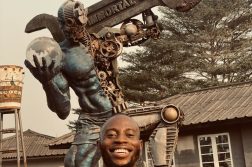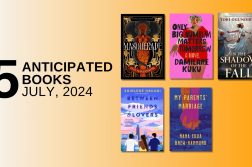
Day 1
Have you ever boarded a bus and felt like slapping the driver?
My ride from Lagos to Abeokuta for the auspicious occasion of the Ake Arts and Books Festival 2017 was one to remember. First, the driver who doubled as the conductor waited until the minibus was almost filled to the brim before he decided to give moving a thought. When he did think of moving, he took the pleasure of delaying us to eat a plate of amala dudu, to every passenger’s disgust, before leaving Lagos at a snail’s pace.
Second, Mr Driver received a call and decided to, unequivocally, wait for a prospective passenger at Mayfair Gardens, Lakowe. There was an almost unintelligible murmur during the wait, but we all were fine. It didn’t piss me off either, but little did I know the worst was yet to happen. Third, Mr Driver helped us spend thirty minutes of our time waiting for somebody at Babcock University junction. He had a package to deliver to Mr Somebody. When the waiting got unbearable, I led the we-no-go-‘gree squad. We got out of the car and shouted above our heads before Mr Driver reluctantly took pity on us and re-started the cabu-cabu of a car.
I arrived the June 12 Cultural Centre, Kuto, at about 3:45pm with a tired face, strained voice and drained body.
Before the volunteers’ meet-and-greet/training, I met Afeez and Seun, both Lagos boys. It was Afeez who told me what the African Writers Starter Pack is: Dreadlocks (very important); a shirt with African print; a pair of glasses (recommended or shako-mended); and African beads or wristband. Then the ever-working, never-tiring Ify Mbanugo showed up. There was a short briefing, and afterwards, we were taken to our hotel.
Day 2
Waking up from bed was a huge hustle, but I pulled it off. By 8:45am, we moved to the Cultural Centre from our hotels. A breakfast of yam and egg was served but we failed to see that it was a trap. Work was to come.
We were placed into various teams, yours truly was placed in Events and Venue Management. Then I met with this group. Six crazily loving people. We talked and laughed like Kuto market women.
We had lunch of amala and ewedu (with efo soup option); dinner was rice and pepper stew or yam porridge (asaro’elepo). Also, the green room – a room with special features for special guests (with special features) – was set up.
Through the valley of the shadow of 7 o’clock’s darkness, we walked into the cinema hall for the screening of ‘Stand Down Soldier’.
Day 3
The programme slated for Wednesday, 15th November, was the Project Inspire where basically, established writers, storytellers, and poets visit secondary schools to give talks to the pupils and fan to flames their reading and writing hunger.
More from #AkeFest17 #ProjectInspire our joy is complete, when we get feed back like this! ❤️❤️ pic.twitter.com/keKmY472Oj
— AkeArts&BookFestival (@akefestival) November 24, 2017
I visited Lisabi Junior Secondary School alongside Koleka Putuma, a wonderful writer and powerful poet; Diane Awerbuck, an established novelist and English teacher; Mr John, a worker from the Ogun State Ministry of Education; and a Pressman (whose name eludes me now).
I was thrilled by the attentiveness of the pupils while Koleka spoke about her writing which began at age 14. Wow! When Diane spoke, their attention doubled. They were trying to comprehend her fast-paced Oyinbo accent.
Three lucky but deserving pupils each got a gift of a book by the acclaimed writer – I like to call her the princess of African literature (since, in my opinion, Chinua Achebe is the king of African literature), none other but Chimamanda Ngozi Adichie, titled Dear Ijeawele, or a Feminist Manifesto in Fifteen Suggestions.
The evening brought the concert held in the Hubert Ogunde Hall. From the entrance of the hall, one could smell and predict a pleasant evening. Even the list of artistes could make one want to eat: Aramide, Celeste, Joyce, Adunni Nefretiti, and Salewa Abeni.
Celeste was the first to bless the stage with her presence and our ears with belly-sweetening music. Her use of the Yoruba language mesmerised me to the point of (don’t think I’ll say stupor) jumping.
Following right after was Joyce, who sang and played the keyboard simultaneously. Her music had deep roots in poetry, and each word she used had the weight of the fattest woman in my village. Her songs were embedded with emotions and they fought enemies like depression and war, among others.

Aramide and her beautiful voice didn’t fail. It moved the crowd and dropped us on a higher plain. She was wonderful. I beg to stop here, else my crush on her will be no more clandestine.
Adunni Nefretiti and Salawa Abeni (the queen of Waka music) brought the roof down. These women made me lose my manners and shame. I dance like a church brother-in-the-Lord.
Day 4
Thursday, 16th November, saw the Welcome Ceremony, held at the Cinema hall, full to the roof. The event was graced by huge personalities and brand representatives. The air was saturated with creativity steaming out from creative minds in the hall.
The event kick-started with our national anthem sang by Celeste. There were goodwill messages and gift presentation by brands and groups like Vlisco and African Speculative Fiction Society (ASFS). Vlisco awarded women for their courage, diligence, strength, and more, while the ASFS announced the winners of the Nommo Awards for Speculative Fiction in these categories: novel, novella, short story, and comics and arts.
The ceremony came to a drop-curtain with a closing speech/vote of thanks by the amiable, one in a million, most beautiful Lola SHoneyin. Did you notice the “Honey” in her name?
The opening ceremony was closely followed by panel discussions and book chats.
Below are some quotes from some panel discussions:
‘When you see a raped woman as a property, you begin to pity the man who’ll marry her, but forget to pity her as an entity being violated’.
- Oluwaseun Ayodeji Osowobi
(Sad)
‘For women to feel comfortable talking about rape, men must be ready to listen and pay attention’.
- Jude Kelly
(True.)
‘We teach our boys it’s romantic to be rape-y by teaching them when a woman says no, she means yes’.
- Pumla Gqola
(No comments. I am a man, you know. Guilty.)
‘You say a woman’s value is purity and when she’s raped, she’s lost it; who made you a judge of values’?
- Oluwaseun Ayomide
(This one is really strong.)
The day ended with a Documentary screening: ‘The Witches of Gambaga’ by Yaba Badoe. It tells the heartrending story of a group of women who, after facing trial and being found guilty of witchcraft, are ostracised and left to the mercy of a greedy ‘chief’.
It is annoying (no, too subtle), it’s anger-provoking (and vex-awakening) to find out what the trial of these supposed witches is: how a fowl dies. Basically, any woman accused of witchcraft will have to slaughter a fowl and leave the almost lifeless bird to fight its last. If it dies with its neck facing the heavens; she is innocent. If it dies with its neck facing the earth, she is a witch!
Day 5
The Early Bud Session which was the first on the Ake programme for Friday, 17th November, got people out of their beds and down to the Cultural Centre, Kuto. We had Marvellous Michael and Mariam Awaisu talk to us about their books.

There were book chats of the following: A Moonless Starless Sky by Alexis Okeowo; The Bright Continent by Dayo Olopade; An Abundance of Scorpions by Hadiza El-Rufai; and What We Lose by Zinzi Clemmons. There were also panel discussions on these topics: ‘Disrupting Culture: Women in Politics’; and ‘Men who write Women’.
There was a jaw-dropping storytelling session by Mara Menzies. Now, I’d met Mara earlier and when she had told me she was a storyteller, my brow had risen in curiosity. So, I entered the Cinema Hall with a blank head and a heart full of expectations.
When she began with a Kenyan story about a woman who lived in a village where women were forbidden to eat meat, excitement gripped me in a bear-hug. And when she ended her performance with the Nigerian story about Orisa, Yemoja, Olodumare and Orun, I was on the edge of my seat. Thrilled would be an understatement. The hall was shaking with the vibration of claps amidst cheers and smiling faces with lit eyes in darkness, like the stars of a night sky.
I didn’t know when the two o’clock sun hit the earth with its arrows of flaming rays because I was in the cinema hall for the Festival of Short Films. Nadine Ibrahim’s film, ‘Through her Eyes’ showed us a very young girl on a suicide bomb mission. We saw, through her eyes, the suffering and death that coloured her life. ‘Bariga Sugar’ by Ifeoma Chukwuogo cracked jaws and caused brows to furrow. We saw the daily lives of prostitutes and we learned they too, like us, are human.
The short film festival ended with Leyla Hussein’s documentary, ‘Face of Defiance’, which narrates the evil of Female Genital Mutilation, FGM. Leyla showed us survivors of FGM and used their strength to discourage the evil.
Before the evening crept in, we sneaked to the Olumo rock and had a lovely tour around the monumental refuge, the rock that hid its people from their oppressors and enemies.
The day faded to an end with a stage play, ‘Quarter Life Crisis’, by the amazing Yolanda Mercy. There ought to have been a sign on the door of the Hubert Ogunde Hall that read: Beware of Laughter!
Day 6
The Early Bud Session for Saturday, November 18, had Amara Okolo and Diekara Oloruntoba talk about their books and inspire young authors. Then there were book chats: Nnedi Okorafor’s Who Fears Death; Diane Awerbuck’s Gardening at Night; Olumide Popoola’s When We Speak of Nothing; and Mohale Mashigo’s The Yearning.
There was another storytelling session by Maimouna Jallow who told the story of Baba Segi’s Wives (written by Lola Shoneyin). I wouldn’t have advised anyone below 18 to be in the hall, you know, we heard ‘things’.
Topics dealt with during panel discussions were: Talking Sexual Violence; Truth Will Out; Feminism Across Borders; and What Are Africans Reading?
Then there was the long-awaited interview with Ama Ata Aidoo by Molara Wood, titled: Life and Time Series. The lengthy interview which saw a full house ended with bittersweet tears. Even Lola Shoneyin shed some! Want to know why about the tears? How about you find out next year at Ake18?
Lovers of palmwine had their fill whilst blessing their ears with soothing poetry by these lovely women: Koleka Putuma, Poetra Asantewa, Mariam Buker, and Aduke Gomez.
Immediately after the Palmwine and Poetry Night was the closing party. There was a superfluous flow of drinks of different colours, texture, and, of course, alcohol-percentage. The multi-coloured lights of the party hall probably made some people – who had never attended a nightclub before – go for confessions afterwards. The DJ didn’t help matters at all when he scratched songs like ‘One Corner’ into the speakers.
When I woke up with a hangover on Sunday morning, I’d almost forgotten I was a volunteer, meaning, there was still work to be done. I joined my crazy group of friends to the Cultural Centre for the last lap of work which I thought would be the last straw that breaks the camel’s back. But, thank goodness, I didn’t break!
As volunteers, we got lots of goody bags and a little something for the pocket.
Ake Festival 17 was fun and I’ll definitely step up my creativity with the loads of inspiration I’ve gathered throughout this August festival. Hope to see you in the next one!
John Okori is a writer whose work focuses on Love, (Gender), Family, and Everyday-struggles. His piece came fourth for the NHCP short story competition. He enjoys being a Tenor, a Composer and a Blogger @ okorijohn.wordpress.com



Discussion1 Comment
This is fantastic